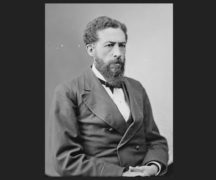Federal officials are probing actions taken in Ohio in 2017 by the largest Medicaid managed care provider in the United States, a source familiar with the investigation has told Ohio Capital Journal.
The U.S. Centers for Medicaid and Medicare Services declined to confirm or deny the existence of an investigation. But the source said the agency is looking into a finding by a consultant hired by the state to analyze billions of dollars in drug transactions in the state’s Medicaid managed-care program during 2017 and 2018.
The finding raised questions about whether Centene — a company which is not well known but is a huge player in state Medicaid programs — effectively billed the state for duplicate services while working with another of the nation’s largest corporations, CVS Health.
The potential problems found in Ohio would not be the first for Centene, The company already has faced more than $23 million in fines and lost incentives over separate issues with its performance in more than a dozen state Medicaid programs, the Des Moines Register reported in 2018.
Loads of hidden money
As with most other states, Ohio’s $26 billion Medicaid program is mostly privatized. And some of the corporations that contract with the agency have long been accused of using their size and a lack of transparency to take outsized profits from a Medicaid system that is known for underpaying providers such as doctors, hospitals, dentists and pharmacists.
Experts say it’s especially critical now to make sure corporations aren’t extracting excessive profits from Medicaid, something they’ve been increasingly accused of in a rapidly consolidating marketplace. That’s because the global coronavirus pandemic is driving large numbers of new patients onto the Medicaid rolls even as the disease is squeezing the economy and sapping tax revenue to pay for the program.
The state’s Medicaid caseloads had dropped in all but two of the 18-months leading into 2020, but then they expanded rapidly when the new coronavirus hit. After increases of fewer than 10,000 in January and February, they leapt by 25,000 in March and 94,000 in April, the latest month for which data are available.
The Ohio Department of Medicaid contracts with managed-care companies to coordinate health care for almost 90% of the roughly 3 million patients in the program.
The companies, in turn, contract with doctors, hospitals and other providers. They also contract with pharmacy benefit managers, which decide what drugs get covered and how, determine pharmacy reimbursements, leverage manufacturer rebates, reconcile pharmacy claims and provide other services.
Pharmacy benefit managers, or PBMs, fight hard to keep information about how they determine drug reimbursements secret. But in the summer of 2018, The Columbus Dispatch obtained confidential reimbursement information from 40 pharmacies. It showed that the two PBMs — CVS Caremark and OptumRx — serving Ohio Medicaid’s five managed-care organizations were charging the taxpayer-funded managed-care companies a lot more for drugs than they were paying the pharmacies that had bought them and dispensed them to patients.
Then, under political pressure, the Medicaid department got the PBMs to cough up all of their reimbursement data between April 1, 2017 and March 31, 2018, and hired the consulting firm HealthPlan Data Solutions to analyze it.
Perhaps the biggest finding was that the pharmacy-benefit managers serving Ohio Medicaid charged managed-care companies such as Buckeye almost a quarter-billion dollars more for drugs than they paid the pharmacies that had dispensed them.
But in addition to that eye-popping number, the analysis also found that one of the state’s five managed-care plans, Buckeye Health, paid its PBM, CVS Caremark, through Envolve, a “pharmacy benefit administrator.”
There is a close relationship between Buckeye and Envolve. Both are owned by St. Louis-based Centene, which represents 13% of Americans enrolled in Medicaid managed-care plans. That makes Centene, No. 42 on Forbes’ Fortune 500, the largest Medicaid managed-care company in the United States.
Buckeye paid Envolve $321 million for drugs, while Envolve passed along only $301 million of that to CVS Caremark, which passed along only $268 million of that to the pharmacies that had actually purchased and dispensed the drugs.
Big markups
So what did the corporations do to earn their respective shares of the $53 million they received from the taxpayers for Medicaid drugs but failed to pass along to the pharmacies?
CVS Caremark has insisted that the expenses it charged are justified and that over the long run, they’ve saved taxpayers large amounts of money. Indeed, the Healthplan Data Solutions report estimated that CVS and OptumRx saved taxpayers $145 million under what it would have cost to fill prescriptions in a fee-for-service model.
However, the consultant and state officials did not agree that taxpayers were getting a good deal from CVS, the fifth-largest corporation in the United States.
The HDS report concluded that CVS Caremark charged the state as much as $164 million above the going rate for its services to four managed-care organizations, including Buckeye, during the year that it analyzed. And the strategy — “spread pricing” — that led to the big differential found by the consultant, has been forbidden in Ohio and other states — partly in response to the report.
That leaves the question of what Envolve did for the $20 million it pocketed from Buckeye.
The HDS report noted that at 16.5%, the difference between what Buckeye, Envolve and CVS Caremark were charging taxpayers and what they were paying pharmacists was much higher than the statewide average — 9.5%. And the smaller amount had already raised much consternation.
In 2018, when the Ohio Department of Medicaid was asked what services Envolve had provided, it said “utilization management, specialty management, data analytics, drug utilization review and formulary management.”
When CVS Caremark was asked by The Dispatch if it provided services by the same names, it said it did.
That raised an important question: Were CVS and Centene/Envolve being paid by Centene/Buckeye for duplicate services?
After the story was published, CVS spokesman Michael DeAngelis modified his statement, saying Centene-owned Envolve and CVS Caremark “focus on different elements within those categories.” A more specific explanation was not provided.
Nor did a spokeswoman for Centene-owned Buckeye break down what the difference was between the $20 million worth of services provided by Envolve and the $33 million worth of services provided by CVS.
“Buckeye’s data included spending on pharmacy-care coordination and other activities, or PBA (Envolve) services, in addition to the expenditures for our PBM (CVS Caremark),” she said. “Buckeye Health Plan meets or exceeds the state’s requirements as laid out in our contract and is fully committed to working with the state in a transparent and collaborative manner.”
Investigation
As for an investigation into whether Centene did anything to earn the $20 million it paid its subsidiary, Ohio Attorney General Dave Yost in early 2019 declared that he was going to launch a number of actions against PBMs that do business with the state. So far the state has filed two lawsuits against OptumRx and Express Scripts. A spokeswoman for Yost didn’t answer directly when asked if her office was investigating Envole’s payments in 2017 and 2018.
The U.S. Centers for Medicare and Medicaid Services, which oversees state Medicaid programs was asked to comment on the investigation, the existence of which was reported to the Capital Journal. On background, a source there said the agency couldn’t confirm or deny the existence of any active probe — a response federal agencies often give when asked about the existence of an investigation.
In a written statement, Buckeye also didn’t answer questions about whether it and Envolve are under federal investigation.
“While Buckeye no longer receives Medicaid PBM services from CVS Caremark, an independent analysis of PBM performance in Ohio from 2018 found that CVS paid independent pharmacies more than its own pharmacies for both brand name and generic drugs,” the company said in a statement. It was referring to the same analysis that found that Buckeye owner Centene effectively paid itself $20 million for services that still haven’t been fully detailed.
Centene has come in for scrutiny well beyond the Buckeye State.
In Texas, the Dallas Morning News reported that Centene’s subsidiary there had denied care to sick and disabled children.
And among the problems the Des Moines Register said Centene has been sanctioned include failing to promptly pay claims and not providing the poor and elderly with adequate access to doctors. The newspaper investigation also found the company paid $4.5 million to settle a lawsuit claiming the company failed to pay overtime to nurses, including in Ohio.
***
The rent is coming due. Will Congress offer more relief as it gets back to work?
WASHINGTON — The nation’s political leaders return to the capital next week with their sights on a fifth — and perhaps final — round of coronavirus relief before the November elections.
The stakes are high and the timetable is short: Three weeks remain before Congress is set to adjourn for its August recess — though House leaders have said they may delay recess if needed to reach a deal. After Congress adjourns, prospects for bipartisan compromise will cool as the election season heats up.
In the meantime, unemployment benefits keeping millions of people financially afloat in the midst of a deep recession are set to expire in a matter of days.
The rent is also coming due at the end of the month — just as a moratorium on evictions from certain types of housing approved in an earlier relief package is about to end.
Schools are preparing to reopen as COVID-19 infections surge across the country — but many teachers and administrators lack the resources they need to do so safely. READ MORE
***
Ohio cities desperate for federal funding to save jobs, local economies
City officials from across the state say federal funding is the only way their previously thriving municipalities can survive the pandemic and its accompanying recession.
City mayors and city council members are trying to push U.S. Sen. Rob Portman to support funding through the Health and Economic Recovery Omnibus Emergency Solutions Act (HEROES Act), saying the deficits caused by COVID-19 revenue losses go far beyond the initial purse of money they received with the Coronavirus Aid, Relief, and Economic Security (CARES) Act.
Of the $1.2 billion earmarked for the state in CARES Act funds, only $350 million has been approved for distribution to municipalities by the Ohio legislature.
“Even if all of that money made it to us, as it should, it’s still not nearly enough,” said Toledo Mayor Wade Kapszukiewicz in a Thursday conference call.
Meanwhile, towns like Toledo, Chillicothe, Columbus, Cleveland and Cincinnati are seeing double-digit forecasted cuts, and ballooning deficits where there was once a surplus. READ MORE





